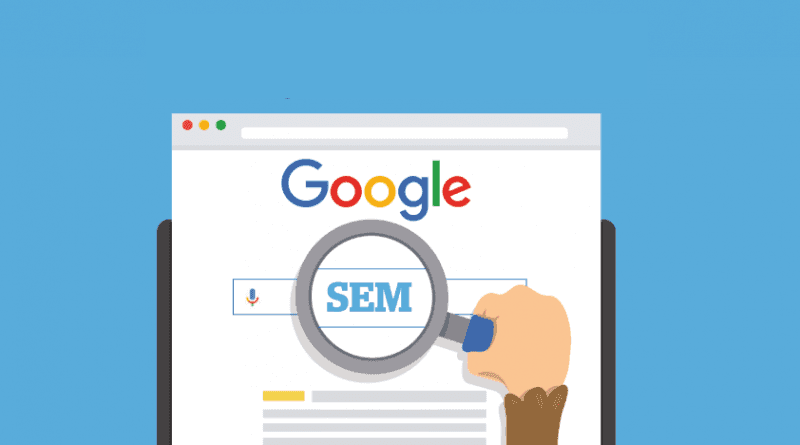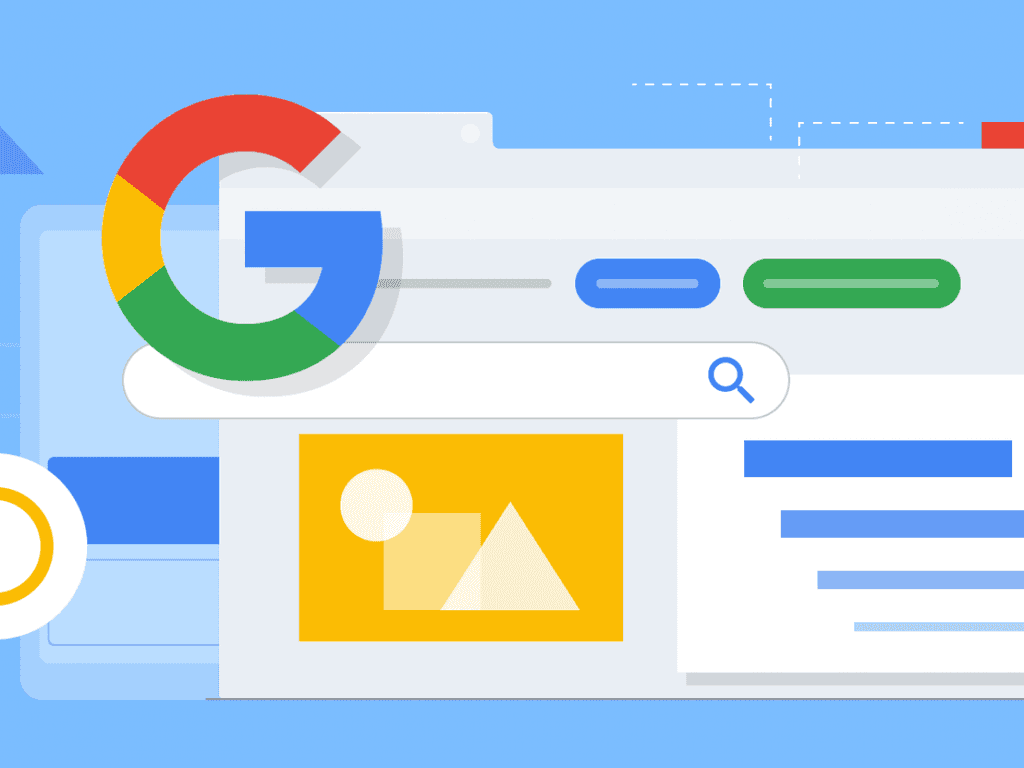
Blog
June 4, 2024
How can you as a small business still get results with SEM when competing against big corporates

Blog
June 4, 2024
How can you as a small business still get results with SEM when competing against big corporates
This article explains how small businesses can still compete with large corporations using Search Engine Marketing (SEM). By focusing on local search, precision targeting, personalized ad copy, and retargeting, small businesses can effectively drive traffic and increase conversions. It highlights the importance of partnering with an experienced SEM agency to optimize campaigns, maximize budget, and achieve results, even in highly competitive markets.
How Small Businesses Can Compete with Big Corporates Using SEM
For small businesses, competing against big corporate giants can feel overwhelming—especially in the world of digital marketing. Larger companies have vast budgets, in-house teams, and the resources to dominate online advertising platforms like Google Ads. However, Search Engine Marketing (SEM) levels the playing field. With the right strategy, targeting, and expertise, small businesses can achieve significant results, even when going up against corporate heavyweights.
In this article, we’ll explore how small businesses can still succeed with SEM and how partnering with the right agency (like ours) can make all the difference.
1. Understanding SEM: A Game Changer for Small Businesses
SEM refers to the use of paid search ads to increase your business’s visibility on search engine results pages (SERPs). Unlike organic search (SEO), SEM allows businesses to bid on keywords so their ads appear at the top of the search results. This is particularly useful for small businesses that need quick results and immediate visibility in competitive markets.
Why it matters: Big corporations may have large budgets, but SEM allows small businesses to target specific, niche audiences effectively. With the right targeting, small businesses can attract highly relevant traffic and compete in search spaces traditionally dominated by larger companies.
2. Leveraging Local Search Ads for an Edge
One of the major advantages small businesses have over big corporates is their ability to focus on local search ads. Consumers often search for businesses nearby, and by targeting location-specific keywords, small businesses can appear at the top of results when potential customers are searching for services in their area.
Why it matters: Large corporations often run broad, national campaigns, but small businesses can hone in on local customers—who are more likely to convert. Using location-based targeting ensures your ads are shown to the right people at the right time, making your SEM efforts more cost-effective and efficient.
3. Precision Targeting on a Limited Budget
When you have a limited budget, every dollar counts. One of the benefits of SEM is the ability to precisely target specific keywords, demographics, and geographic locations. Rather than casting a wide net like big corporates, small businesses can focus on long-tail keywords—phrases that are more specific and often less competitive.
Why it matters: Big companies tend to bid on high-volume, expensive keywords. By focusing on more niche, long-tail keywords, small businesses can get better value from their budget. These keywords are often less expensive and lead to higher-quality traffic, since they reflect more specific user intent.
4. The Power of Ad Copy and Personalization
With SEM, it’s not just about placing an ad—it’s about placing an ad that resonates with your target audience. Small businesses can craft highly personalized and locally relevant ad copy that speaks directly to their customers' needs. While large corporations often use generic messaging, small businesses have the advantage of connecting on a more personal level with their audience.
Why it matters: Effective, compelling ad copy can significantly increase your click-through rates (CTR). By highlighting unique selling points, such as excellent customer service, local expertise, or fast response times, small businesses can attract attention away from bigger competitors.
5. Focus on Quality Score to Maximize Ad Spend
Google uses a Quality Score to rank ads, which is based on factors like the relevance of your keywords, the quality of your landing page, and your ad’s expected CTR. Small businesses can improve their Quality Score by focusing on delivering relevant, well-structured ads and creating user-friendly landing pages.
Why it matters: A higher Quality Score can lower your cost-per-click (CPC), meaning you’ll pay less for each ad click while maintaining high visibility. This gives small businesses an opportunity to stretch their budget and compete with larger companies, even if they have less to spend.
6. Retargeting Campaigns for Increased Conversions
Another powerful SEM tactic for small businesses is retargeting. Retargeting ads allow you to reconnect with people who have already visited your website but didn’t make a purchase or inquiry. This is a highly effective way to convert warm leads into paying customers.
Why it matters: Retargeting campaigns can be more cost-efficient than initial ads since you’re marketing to people who have already shown interest in your business. This gives small businesses an edge by focusing resources on leads that are more likely to convert, rather than spending heavily to attract new visitors from scratch.
7. Why Partnering with an SEM Agency is Crucial
While SEM is a powerful tool, its complexity can make it challenging to manage effectively without the right expertise. For small businesses to truly maximize their SEM efforts and compete against big corporates, partnering with a specialized SEM agency can make all the difference. Our agency, for instance, is dedicated to helping small businesses succeed through tailored strategies that make every dollar count.
Why it matters: SEM requires ongoing optimization, from keyword adjustments to bid management and ad copy testing. A professional agency can handle these tasks with precision, ensuring that your campaigns are optimized for success. We stay on top of the latest SEM trends, continuously refine strategies, and provide in-depth reporting so you can see real, measurable results.
8. Maximizing ROI with Expert Guidance
An SEM agency understands how to allocate budget effectively to get the best results. We can help you identify which keywords to bid on, how to adjust bids based on performance, and how to improve landing page quality for better conversions.
Why it matters: Small businesses often can’t afford trial-and-error approaches. By leveraging our expertise, we ensure that your SEM campaigns are optimized for maximum ROI, reducing waste and increasing the chances of outperforming larger competitors.
9. Adaptability and Flexibility
One major advantage small businesses have over large corporations is their ability to adapt quickly. SEM strategies need constant tweaking, and small businesses can pivot faster, trying new approaches without the bureaucratic delays big companies face.
Why it matters: If a campaign isn’t working, small businesses can quickly change their strategy, test different keywords, or adjust bids. This flexibility allows them to be more agile and responsive, which is critical in the fast-paced world of SEM.
Conclusion
Although competing with big corporates might seem daunting, small businesses can still achieve excellent results with Search Engine Marketing (SEM). By focusing on local search, precision targeting, personalized ad copy, and expert guidance, small businesses can effectively use SEM to drive traffic and convert leads. Partnering with a skilled SEM agency, like ours, ensures that your campaigns are optimized for success, helping you maximize your budget and compete in a crowded market. With the right approach, small businesses can thrive in the digital space, even when going head-to-head with larger corporations.
How Small Businesses Can Compete with Big Corporates Using SEM
For small businesses, competing against big corporate giants can feel overwhelming—especially in the world of digital marketing. Larger companies have vast budgets, in-house teams, and the resources to dominate online advertising platforms like Google Ads. However, Search Engine Marketing (SEM) levels the playing field. With the right strategy, targeting, and expertise, small businesses can achieve significant results, even when going up against corporate heavyweights.
In this article, we’ll explore how small businesses can still succeed with SEM and how partnering with the right agency (like ours) can make all the difference.
1. Understanding SEM: A Game Changer for Small Businesses
SEM refers to the use of paid search ads to increase your business’s visibility on search engine results pages (SERPs). Unlike organic search (SEO), SEM allows businesses to bid on keywords so their ads appear at the top of the search results. This is particularly useful for small businesses that need quick results and immediate visibility in competitive markets.
Why it matters: Big corporations may have large budgets, but SEM allows small businesses to target specific, niche audiences effectively. With the right targeting, small businesses can attract highly relevant traffic and compete in search spaces traditionally dominated by larger companies.
2. Leveraging Local Search Ads for an Edge
One of the major advantages small businesses have over big corporates is their ability to focus on local search ads. Consumers often search for businesses nearby, and by targeting location-specific keywords, small businesses can appear at the top of results when potential customers are searching for services in their area.
Why it matters: Large corporations often run broad, national campaigns, but small businesses can hone in on local customers—who are more likely to convert. Using location-based targeting ensures your ads are shown to the right people at the right time, making your SEM efforts more cost-effective and efficient.
3. Precision Targeting on a Limited Budget
When you have a limited budget, every dollar counts. One of the benefits of SEM is the ability to precisely target specific keywords, demographics, and geographic locations. Rather than casting a wide net like big corporates, small businesses can focus on long-tail keywords—phrases that are more specific and often less competitive.
Why it matters: Big companies tend to bid on high-volume, expensive keywords. By focusing on more niche, long-tail keywords, small businesses can get better value from their budget. These keywords are often less expensive and lead to higher-quality traffic, since they reflect more specific user intent.
4. The Power of Ad Copy and Personalization
With SEM, it’s not just about placing an ad—it’s about placing an ad that resonates with your target audience. Small businesses can craft highly personalized and locally relevant ad copy that speaks directly to their customers' needs. While large corporations often use generic messaging, small businesses have the advantage of connecting on a more personal level with their audience.
Why it matters: Effective, compelling ad copy can significantly increase your click-through rates (CTR). By highlighting unique selling points, such as excellent customer service, local expertise, or fast response times, small businesses can attract attention away from bigger competitors.
5. Focus on Quality Score to Maximize Ad Spend
Google uses a Quality Score to rank ads, which is based on factors like the relevance of your keywords, the quality of your landing page, and your ad’s expected CTR. Small businesses can improve their Quality Score by focusing on delivering relevant, well-structured ads and creating user-friendly landing pages.
Why it matters: A higher Quality Score can lower your cost-per-click (CPC), meaning you’ll pay less for each ad click while maintaining high visibility. This gives small businesses an opportunity to stretch their budget and compete with larger companies, even if they have less to spend.
6. Retargeting Campaigns for Increased Conversions
Another powerful SEM tactic for small businesses is retargeting. Retargeting ads allow you to reconnect with people who have already visited your website but didn’t make a purchase or inquiry. This is a highly effective way to convert warm leads into paying customers.
Why it matters: Retargeting campaigns can be more cost-efficient than initial ads since you’re marketing to people who have already shown interest in your business. This gives small businesses an edge by focusing resources on leads that are more likely to convert, rather than spending heavily to attract new visitors from scratch.
7. Why Partnering with an SEM Agency is Crucial
While SEM is a powerful tool, its complexity can make it challenging to manage effectively without the right expertise. For small businesses to truly maximize their SEM efforts and compete against big corporates, partnering with a specialized SEM agency can make all the difference. Our agency, for instance, is dedicated to helping small businesses succeed through tailored strategies that make every dollar count.
Why it matters: SEM requires ongoing optimization, from keyword adjustments to bid management and ad copy testing. A professional agency can handle these tasks with precision, ensuring that your campaigns are optimized for success. We stay on top of the latest SEM trends, continuously refine strategies, and provide in-depth reporting so you can see real, measurable results.
8. Maximizing ROI with Expert Guidance
An SEM agency understands how to allocate budget effectively to get the best results. We can help you identify which keywords to bid on, how to adjust bids based on performance, and how to improve landing page quality for better conversions.
Why it matters: Small businesses often can’t afford trial-and-error approaches. By leveraging our expertise, we ensure that your SEM campaigns are optimized for maximum ROI, reducing waste and increasing the chances of outperforming larger competitors.
9. Adaptability and Flexibility
One major advantage small businesses have over large corporations is their ability to adapt quickly. SEM strategies need constant tweaking, and small businesses can pivot faster, trying new approaches without the bureaucratic delays big companies face.
Why it matters: If a campaign isn’t working, small businesses can quickly change their strategy, test different keywords, or adjust bids. This flexibility allows them to be more agile and responsive, which is critical in the fast-paced world of SEM.
Conclusion
Although competing with big corporates might seem daunting, small businesses can still achieve excellent results with Search Engine Marketing (SEM). By focusing on local search, precision targeting, personalized ad copy, and expert guidance, small businesses can effectively use SEM to drive traffic and convert leads. Partnering with a skilled SEM agency, like ours, ensures that your campaigns are optimized for success, helping you maximize your budget and compete in a crowded market. With the right approach, small businesses can thrive in the digital space, even when going head-to-head with larger corporations.




This article explains how small businesses can still compete with large corporations using Search Engine Marketing (SEM). By focusing on local search, precision targeting, personalized ad copy, and retargeting, small businesses can effectively drive traffic and increase conversions. It highlights the importance of partnering with an experienced SEM agency to optimize campaigns, maximize budget, and achieve results, even in highly competitive markets.
How Small Businesses Can Compete with Big Corporates Using SEM
For small businesses, competing against big corporate giants can feel overwhelming—especially in the world of digital marketing. Larger companies have vast budgets, in-house teams, and the resources to dominate online advertising platforms like Google Ads. However, Search Engine Marketing (SEM) levels the playing field. With the right strategy, targeting, and expertise, small businesses can achieve significant results, even when going up against corporate heavyweights.
In this article, we’ll explore how small businesses can still succeed with SEM and how partnering with the right agency (like ours) can make all the difference.
1. Understanding SEM: A Game Changer for Small Businesses
SEM refers to the use of paid search ads to increase your business’s visibility on search engine results pages (SERPs). Unlike organic search (SEO), SEM allows businesses to bid on keywords so their ads appear at the top of the search results. This is particularly useful for small businesses that need quick results and immediate visibility in competitive markets.
Why it matters: Big corporations may have large budgets, but SEM allows small businesses to target specific, niche audiences effectively. With the right targeting, small businesses can attract highly relevant traffic and compete in search spaces traditionally dominated by larger companies.
2. Leveraging Local Search Ads for an Edge
One of the major advantages small businesses have over big corporates is their ability to focus on local search ads. Consumers often search for businesses nearby, and by targeting location-specific keywords, small businesses can appear at the top of results when potential customers are searching for services in their area.
Why it matters: Large corporations often run broad, national campaigns, but small businesses can hone in on local customers—who are more likely to convert. Using location-based targeting ensures your ads are shown to the right people at the right time, making your SEM efforts more cost-effective and efficient.
3. Precision Targeting on a Limited Budget
When you have a limited budget, every dollar counts. One of the benefits of SEM is the ability to precisely target specific keywords, demographics, and geographic locations. Rather than casting a wide net like big corporates, small businesses can focus on long-tail keywords—phrases that are more specific and often less competitive.
Why it matters: Big companies tend to bid on high-volume, expensive keywords. By focusing on more niche, long-tail keywords, small businesses can get better value from their budget. These keywords are often less expensive and lead to higher-quality traffic, since they reflect more specific user intent.
4. The Power of Ad Copy and Personalization
With SEM, it’s not just about placing an ad—it’s about placing an ad that resonates with your target audience. Small businesses can craft highly personalized and locally relevant ad copy that speaks directly to their customers' needs. While large corporations often use generic messaging, small businesses have the advantage of connecting on a more personal level with their audience.
Why it matters: Effective, compelling ad copy can significantly increase your click-through rates (CTR). By highlighting unique selling points, such as excellent customer service, local expertise, or fast response times, small businesses can attract attention away from bigger competitors.
5. Focus on Quality Score to Maximize Ad Spend
Google uses a Quality Score to rank ads, which is based on factors like the relevance of your keywords, the quality of your landing page, and your ad’s expected CTR. Small businesses can improve their Quality Score by focusing on delivering relevant, well-structured ads and creating user-friendly landing pages.
Why it matters: A higher Quality Score can lower your cost-per-click (CPC), meaning you’ll pay less for each ad click while maintaining high visibility. This gives small businesses an opportunity to stretch their budget and compete with larger companies, even if they have less to spend.
6. Retargeting Campaigns for Increased Conversions
Another powerful SEM tactic for small businesses is retargeting. Retargeting ads allow you to reconnect with people who have already visited your website but didn’t make a purchase or inquiry. This is a highly effective way to convert warm leads into paying customers.
Why it matters: Retargeting campaigns can be more cost-efficient than initial ads since you’re marketing to people who have already shown interest in your business. This gives small businesses an edge by focusing resources on leads that are more likely to convert, rather than spending heavily to attract new visitors from scratch.
7. Why Partnering with an SEM Agency is Crucial
While SEM is a powerful tool, its complexity can make it challenging to manage effectively without the right expertise. For small businesses to truly maximize their SEM efforts and compete against big corporates, partnering with a specialized SEM agency can make all the difference. Our agency, for instance, is dedicated to helping small businesses succeed through tailored strategies that make every dollar count.
Why it matters: SEM requires ongoing optimization, from keyword adjustments to bid management and ad copy testing. A professional agency can handle these tasks with precision, ensuring that your campaigns are optimized for success. We stay on top of the latest SEM trends, continuously refine strategies, and provide in-depth reporting so you can see real, measurable results.
8. Maximizing ROI with Expert Guidance
An SEM agency understands how to allocate budget effectively to get the best results. We can help you identify which keywords to bid on, how to adjust bids based on performance, and how to improve landing page quality for better conversions.
Why it matters: Small businesses often can’t afford trial-and-error approaches. By leveraging our expertise, we ensure that your SEM campaigns are optimized for maximum ROI, reducing waste and increasing the chances of outperforming larger competitors.
9. Adaptability and Flexibility
One major advantage small businesses have over large corporations is their ability to adapt quickly. SEM strategies need constant tweaking, and small businesses can pivot faster, trying new approaches without the bureaucratic delays big companies face.
Why it matters: If a campaign isn’t working, small businesses can quickly change their strategy, test different keywords, or adjust bids. This flexibility allows them to be more agile and responsive, which is critical in the fast-paced world of SEM.
Conclusion
Although competing with big corporates might seem daunting, small businesses can still achieve excellent results with Search Engine Marketing (SEM). By focusing on local search, precision targeting, personalized ad copy, and expert guidance, small businesses can effectively use SEM to drive traffic and convert leads. Partnering with a skilled SEM agency, like ours, ensures that your campaigns are optimized for success, helping you maximize your budget and compete in a crowded market. With the right approach, small businesses can thrive in the digital space, even when going head-to-head with larger corporations.




Other Blogs
Other Blogs
Check our other project Blogs with useful insight and information for your businesses
Other Blogs
Other Blogs
Check our other project Blogs with useful insight and information for your businesses
Other Blogs
Other Blogs
Check our other project Blogs with useful insight and information for your businesses


